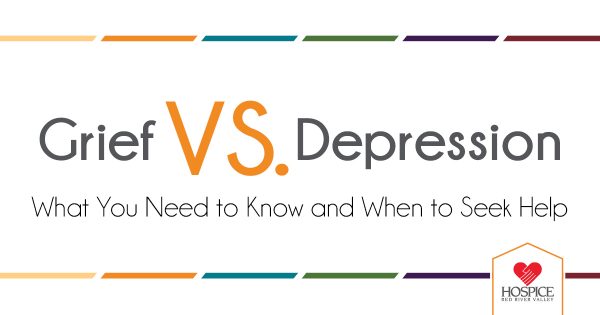
It is not uncommon for people to question whether they or someone they know is depressed after the death of a loved one. For most people, the emotional, mental and physical symptoms experienced after a death can be attributed to normal grief. However, this is not always the case. It is important to understand the difference between normal grief and clinical depression so the bereaved person gets the appropriate support or treatment. Before we can differentiate between grief and depression, we need to understand what defines each of them.
Grief
Grief can be defined as a natural response to any loss, including physical, cognitive, emotional, behavioral and spiritual responses. Grief is unique to each individual but can include any combination of the following:
- Change in appetite
- Sleep disturbance
- Fatigue/exhaustion
- Tearfulness
- Difficulty concentrating
- Avoidance of people and situations
- Suicidal thoughts or actions
- Anger, sadness, loneliness
- Feelings of hopelessness
- Neglect of hygiene
- Loss of interest in work or activities
- Anger at self, deceased person, God
Depression
Depression is clinical condition that can become deadly if left untreated. To be diagnosed with depression from a medical professional, a person must have a certain number and combination of symptoms. These symptoms must be present nearly every day for at least two weeks. Some criteria for diagnosis include presence of the following:
- Depressed mood or irritability
- Loss of interest or pleasure in activities
- Loss of appetite, significant weight loss
- Sleeping too much or not enough
- Sluggish movements
- Fatigue, loss of energy
- Feelings of worthlessness, guilt
- Indecisiveness, difficultly concentrating
- Recurrent thoughts of death or suicide
- Significant impairment in functioning
As you can see, there are many similarities between grief and depression, but there are also important differences. The chart below identifies some of the differences between typical grief reactions and clinical depression. Keep in mind that it is possible a person could be experiencing both grief and depression at the same time.

If you find that you or a loved one identifies with several of the items in the depression column, it is important to consult with a physician or mental health provider. While depression is typically treated with psychotherapy and/or medication, grief is generally not treated with medication. However, many bereaved people have found individual or group support to be helpful in finding ways to cope with their grief. Please seek help if you or a loved one is struggling with grief or depression.
Click to download and print Grief vs. Depression: What You Need to Know and When to Seek Help article.
Hospice of the Red River Valley has many resources available for the public, on a loan basis, through the resource libraries in each of our offices. Topics include caregiving, terminal illness, dying, death, grief and loss. To view more information about our grief support services, visit the grief support section of our website or call us at (800) 237-4629.


